Labour needs to learn the right lessons from the local election results – it can't survive as a one-man band
Labour needs to convince the public that it has a strong team around its star striker. They need to showcase other members, who should be allowed to speak beyond their departmental briefs

Labour needs to draw the right lessons from disappointing local election results in England. The truth is that the party is not on course for a general election victory. The headlines will be about Labour’s failure to gain any councils in London, where it allowed great expectations to run ahead of reality in Wandsworth and Westminster, and let the Tories talk down their prospects so the results looked better on the night.
What should most worry Labour is not losing the “spin war” but its poor performance in places like Nuneaton, Dudley, Derby and Swindon. Labour may dominate the big cities but needs to advance in marginal seats in towns to win power.
Lots of people, including some inside Labour, will interpret the results as showing that “peak Corbyn” has passed, and so the only way is down. Some will doubtless predict Corbyn’s exit before the next general election. That is premature, since Labour believes there is a chance the Brexit process ends in chaos this autumn and results in an election. Forcing one will certainly determine Labour’s response when Theresa May puts her deal to parliament.
But Labour figures urging the leadership not to go all-out against Brexit (for example, by backing a referendum on the deal) will feel their hand is strengthened by Thursday’s results. The Tories hoovered up much of the Ukip vote and Labour underperformed in some areas that voted Leave in the 2016 referendum.
Corbyn remains Labour’s best asset and the party would go backwards under any other leader likely to be elected by its 550,000 members. The enthusiasm for him at the general election a year ago was genuine and is still there among many voters. But nothing lasts forever and the novelty factor is bound to wear off. Corbyn’s age might become an issue if Labour fails to move ahead in the opinion polls and the Tories manage to delay the next election until 2022. But it is still hard to imagine Corbyn’s party moving against him; if he wants to fight a 2022 election, it will almost certainly let him.
An important lesson from the local elections is that Labour cannot be a one-man band. Canvassers found plenty of people who liked Corbyn, but also some for whom he was a barrier to voting Labour. The antidote to this is for Labour to convince the public that it has a strong team around its star striker. The shadow cabinet is largely unknown to voters. Its most prominent members – including John McDonnell, Diane Abbott, Emily Thornberry and Sir Keir Starmer – represent London constituencies, like Corbyn. Labour needs to showcase other members, who should be allowed to speak beyond their departmental briefs. It would help to reassure voters with doubts about Corbyn that a Labour government would be run by a cabinet team with a slightly broader range of views, and not just a left-wing prime minister.
The other lesson from the local polls is that Corbyn should take a leaf out of his close ally McDonnell’s book. The shadow chancellor is more prepared than the Labour leader to do what it takes to win, especially outside London. It doesn’t mean selling out your principles; no one would accuse McDonnell of doing that. It does mean not giving Russia the benefit of the doubt after the Salisbury nerve agent attack. McDonnell was more prepared than Corbyn to point the finger of blame at Russia, and say that Labour MPs should not appear on its state-funded RT television channel.
Corbyn has also paid a price for not tackling antisemitism quickly enough, and ignoring the warning he was given two years ago when the allegations emerged. Labour would surely have picked the low-hanging fruit in Barnet without the recent controversy. Instead, it went backwards in the London borough, which has the highest Jewish population in the country. The lesson is that Corbyn will have to upset some friends on the left who cross the line to antisemitism. Playing the victim and suggesting the allegations are an anti-Corbyn smear might cheer his adoring followers but does not convince anyone else.
While a vanishing Ukip was the biggest loser, the Liberal Democrats can celebrate a mini-bounce back after gaining their leader Sir Vince Cable’s home ground in Richmond. They will hope the only way now is up from their low base, and that the stalemate between the two big parties leaves them holding the balance of power after the next election.
The Tories will have happily settled for these results beforehand. After eight years of power and austerity, to be neck and neck with the opposition is an achievement. But they need to do better in the big cities, among young adults and ethnic minorities. However, the Tories have a secret weapon that might just get them over the finishing line next time: May will try to implement a review of constituency boundaries that would reduce the number of MPs from 650 to 600 and could give her party a 20-seat advantage. Another reason why Labour needs to be ahead at this stage of the game.


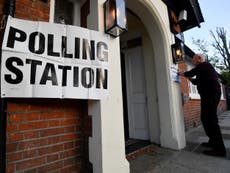
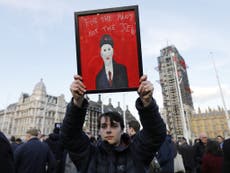
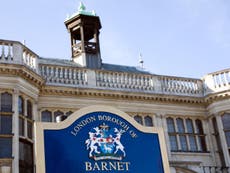
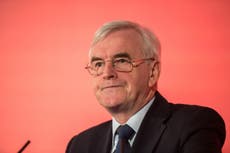
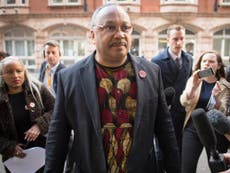
Join our commenting forum
Join thought-provoking conversations, follow other Independent readers and see their replies